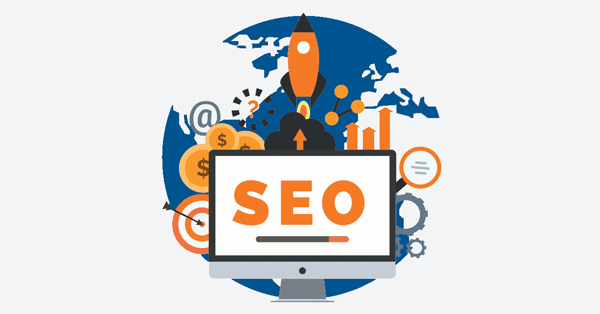Search engine optimization is crucial for any business trying to stand out in the crowded online space. Good SEO increases visibility on search engines. It creates organic traffic and leads to better conversions. However, improving SEO is not a one-time task. It requires continuous effort and data-driven decisions.
Data tracking is an important part of SEO. It allows companies to look at user behavior and the performance of their site. Properly tracking data allows you to make decisions based on data. This data will allow for better optimization and ultimately allow better search ranking.
Table of Contents
The Importance of Improving Your SEO
Improving your SEO is vital for any business. Here are key reasons why:
Increased Visibility
When you make good SEO improvements to your site, you will increase the visibility of your website. The better your site ranks on SERPs, the more clicks your site will get. It is important to remember that high-ranking pages are almost always seen by the users. Visibility always equals potential exposure to customers.
In fact, according to a study by BrightEdge, 68% of online experiences begin with a search engine. If your product is there for the consumer, there is a much better chance they will click on your link instead of a link to your competition, if they even go that route.
Increased Organic Traffic
SEO enhances organic traffic. Organic traffic is free, and unlike paid advertising, it is longer lasting. Organic traffic is more focused on users who are currently searching for information, products, or services connected with your business. This makes the traffic even more contextual and relevant. For instance, if your website ranks on the first page for a keyword phrase such as “best running shoes,” you will likely get users who are searching for running shoes.
Higher Conversion Rates
Search engine users are typically intent-driven visitors. They are searching for a solution, product, or service. Because they are intent-driven, they are more likely to convert to a customer.
A person who clicks on a Google search result has a 14.6% higher chance of making a purchase, according to a study conducted by Search Engine Journal. When you improve your SEO, you get intent-driven users who are ready to make a decision. By capturing these users, you are increasing your chance of converting users to paying customers.
Affordable Marketing
SEO is a much more affordable marketing channel to pursue than traditional advertising, and it provides a long-term channel without ongoing expenditure. Once you move up in rankings and traffic establishes, you won’t have any costs to maintain that traffic.
In comparison, with PPC (pay-per-click) advertising, for every click you pay. Organic traffic is free. Costs are associated with driving that traffic, but less than traditional marketing options.
According to HubSpot, SEO leads have a 14.6% close rate, as compared to outbound leads (like direct mail or print advertising), which have only a 1.7% close rate, making SEO a generally cost-effective strategy.
Competitive Edge
When you employ good SEO, you create an edge over your competition. When your website ranks higher than your competitors, you will receive two to three times the amount of traffic that your competitors receive. All this traffic can translate to additional sales, greater market share, or an increase in brand awareness.
Companies that appear in the number 1, 2, or 3 organic positions on Google’s search results gain a total combined average of 54.4% clicks from Google Search. When you invest in SEO to better compete and eventually rank at or near the top of Google Search, you are firing on all cylinders.

Improved User Experience
SEO is specifically intended to make customers happy. Things like fast load times, mobile optimizations, usability, and site structure all generate a great user experience. When you have a good user experience, users stay longer, and a lower bounce rate means you’re on the right track. Using these best practices allows Google to better rank your site based on user experience.
For example, Google’s Core Web Vitals track and rank user experience on loading performance, interactivity, and visual stability. Google is moving toward having all websites improve upon these three areas as they relate to your ranking.
Brand Credibility and Trust
Websites that rank higher are perceived as more credible and trustworthy, and users tend to trust search engines to deliver the optimal search results. The higher your rankings, the more credible you are perceived, increasing the likelihood of someone choosing your brand over another.
According to Moz, they found that 75% of users do not scroll beyond the first page of searches. Therefore, being on the first page not only gives you visibility but also adds to your brand’s trustworthiness.

Improved Local Reach
Local SEO is very beneficial for businesses seeking new, local customers. The goal is to optimize your website in order to appear in relevant local searches. This will be extremely helpful for a business with a set geographical area.
For example, a local bakery is trying to rank for “best bakery in [City].” Naturally, they are trying to attract customers in their immediate area. Local SEO strategies, such as claiming your Google My Business listing, optimizing for local keywords, and obtaining local reviews, when combined, can improve your visibility in local searches significantly.
Building a Brand MOAT with Data Tracking
Data tracking helps build a strong brand MOAT (an enduring competitive advantage). By leveraging insights from data, businesses can continuously refine their SEO strategies, adapt to changing market conditions, and outperform competitors. This ongoing improvement in visibility and user engagement establishes your brand as a leader in your industry.
Insight into Customer Behavior
SEO tools give good information about the actions of users. You can view what keywords users are searching for, how they are engaging with your site, and what specific content they are accessing. This information will give you the necessary insight into customer wants and needs so that you can better craft your content and products.
Google Analytics and SEMrush are examples of SEO tools that will provide information about the customer by giving you access to things like demographics, behavior flow, and customer conversion paths.
What Data You Need to Track
Tracking the right data is crucial for effective SEO. Here are the key types of data you need to monitor:
Traffic Sources
The sources of your visitors come from various channels. Visitors to your website arrive through organic search and direct traffic and through referrals as well as social media platforms. The understanding of these sources enables you to direct your efforts toward the most successful channels. SEO strategies should become your priority when organic search generates the largest portion of traffic.
User Engagement Metrics
User engagement metrics show how users interact with your website. The main indicators that track user interactions include click-through rate (CTR) together with bounce rate and session duration. The relevance of your content becomes apparent when users click through at high rates.
Users staying on your website becomes evident through low bounce rates. The time users spend on your website indicates how engaging your content is. Your ability to analyze user behavior becomes possible through these metrics while you work to improve website engagement.
Keyword Rankings
Keyword rankings show how well your site performs for specific search terms. Tracking these rankings helps you identify which keywords bring the most traffic. It also highlights new keyword opportunities. Regularly monitoring keyword performance allows you to adjust your SEO strategy and improve rankings.
Backlinks
Backlinks are links from other websites to your site. They are crucial for SEO. Tracking backlinks helps you evaluate their quality and impact. High-quality backlinks from reputable sites improve your site’s authority. Analyze your backlink profile to identify opportunities for new links and improve existing ones.

Conversion Rates
Conversion rates measure the percentage of visitors who complete a desired action. This could be making a purchase, signing up for a newsletter, or filling out a contact form. High conversion rates indicate effective SEO and marketing strategies. Tracking these rates helps you understand which pages and strategies are most successful.
Competitor Analysis
Competitor analysis involves monitoring your competitors’ SEO performance. Key metrics include their keyword rankings, backlink profiles, and content strategies. Understanding their strengths and weaknesses helps you refine your own SEO strategy. Regularly tracking competitor data keeps you informed and competitive.
How You Can Track Data
Tracking SEO data involves several methods. Start with setting up Google Analytics. It provides comprehensive insights into your website’s performance. Use Google Search Console to monitor your site’s presence in search results. Check your keyword rankings using various SEO tools. Keep track of your backlinks and their quality.
Technical SEO audits help identify issues like site speed and mobile usability. Monitor your content performance by looking at metrics like page views and social shares. Finally, competitor analysis helps you understand your market position. Use tools that provide insights into competitors’ strategies and traffic.
Best Tools for Data Tracking
With the ever-increasing importance of SEO, there are many great tools you can use to enhance your website’s performance.
Google Analytics
Google Analytics is essential. It tracks traffic sources, user behavior, and conversions. It provides detailed reports. It helps you understand how users interact with your site.
Google Search Console
Google Search Console monitors your site’s presence in Google search results. It shows search queries that bring traffic. It helps identify and fix indexing issues. It tracks backlinks and site performance.
SEMrush
SEMrush is a comprehensive SEO tool. It tracks keyword rankings, backlinks, and traffic. It provides competitor analysis. You can use this tool to identify new keyword opportunities. It offers site audit features.

Ahrefs
Ahrefs is great for backlink analysis. This tool shows who links to your site. Track keyword rankings and competitors with this tool. It provides detailed site audits. It helps identify content opportunities.
Moz
Moz offers tools for keyword tracking and site audits. It provides insights into domain authority and backlinks. This tool helps monitor local search performance. It offers a user-friendly interface.
Screaming Frog
Screaming Frog is a website crawler. It is important for anyone who wants to identify technical SEO issues. It checks for broken links, duplicate content, and redirects. Use this tool to generate a detailed site analysis.
Yoast SEO
Yoast SEO is a WordPress plugin. It helps optimize content for SEO. Get real-time content analysis and readability checkers. This tool also makes sure that you use keywords correctly and lets you boost your on-page SEO.
Concerns with Data Tracking
While data tracking is very important, it can also cause some issues.
Privacy Issues
Data tracking raises privacy concerns. Users are increasingly worried about how their data is collected and used. Businesses must ensure they comply with privacy regulations. This includes GDPR in Europe and CCPA in California. Failing to do so can result in penalties and loss of trust.
Data Security
Data security is a significant concern. Storing large amounts of data makes businesses targets for cyberattacks. Data breaches can lead to sensitive information being exposed. This can damage a company’s reputation. It is crucial to implement robust security measures.
Accuracy of Data
The accuracy of data is vital. Inaccurate data can lead to poor decision-making. Data collection tools must be configured correctly. Regular audits are necessary to ensure data integrity. Misleading data can derail your SEO efforts.
User Consent
User consent is a legal requirement. Businesses must obtain explicit consent from users before tracking their data. This can be challenging to manage. Users may opt out, reducing the amount of data available for analysis. Ensuring compliance is essential.
Effective data tracking is essential for improving your SEO. By monitoring key metrics and using the right tools, you can make informed decisions that enhance your online presence.
Invest in robust data tracking to stay competitive and achieve long-term success. This ongoing process will help you adapt to changes in search algorithms and user behavior. With the right approach, you can significantly boost your website’s visibility, traffic, and conversions.
Contact EvolveDash today to streamline your growth journey!
FAQs
- How often should you track SEO data?
It’s best to track key metrics weekly or monthly to spot trends and make adjustments.
- Does data tracking help with voice search optimization?
Yes, tracking search queries and user behavior can help optimize content for voice searches.
- How can small businesses use data tracking for SEO?
They can track local search rankings, user engagement, and competitor keywords to improve visibility.
- What’s the best way to track SEO progress over time?
Use tools like Google Analytics, Ahrefs, and SEMrush to compare past and current data.



















